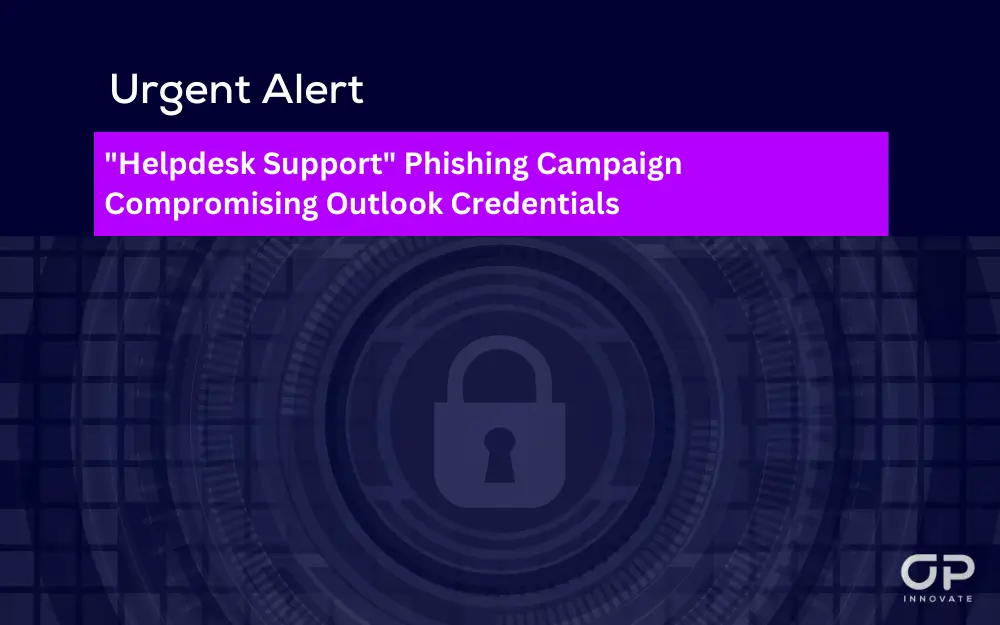The Italian Computer Security Incident Response Team (CSIRT) has issued a warning about a resurgence of the “Helpdesk Support” phishing campaign. This sophisticated attack aims to steal Microsoft Outlook login credentials through deceptive emails that exploit anxieties related to mailbox updates.
Attack Details:
- Campaign Name: Helpdesk Support
- Target: Microsoft Outlook users
- Method: Deceptive emails with malicious links leading to fake login pages
- Objective: Steal Outlook login credentials
Description:
Attackers are sending emails urging recipients to take immediate action for mailbox updates. These emails contain malicious links that redirect users to a fake login page that closely resembles the authentic Microsoft Outlook interface. When victims enter their credentials, they are unknowingly transmitted directly to the cybercriminals. The phishing page then redirects the user to a courtesy page, creating the illusion that their request has been processed.
Consequences of Compromise:
- Email account takeover
- Further phishing attacks against contacts
- Unauthorized access to company systems
- Data breaches and financial loss
Mitigation Strategies:
- Employee Awareness Training: Regularly educate employees on identifying phishing emails. Emphasize checking sender addresses, verifying link destinations, and being cautious of urgent, unexpected requests.
- Technical Measures: Implement web filtering and multi-factor authentication to protect against unauthorized access.
- IoC Implementation: Review and apply the Indicators of Compromise (IoCs) provided by CSIRT to your security systems for enhanced detection and prevention.
Recommendations:
IT security teams should remain vigilant and ensure that employees are aware of the tactics used in phishing campaigns like “Helpdesk Support.” Regular training, coupled with strong technical controls, can significantly reduce the risk of credential theft and its associated consequences.
Stay safe and informed,
OP Innovate Research Team.









